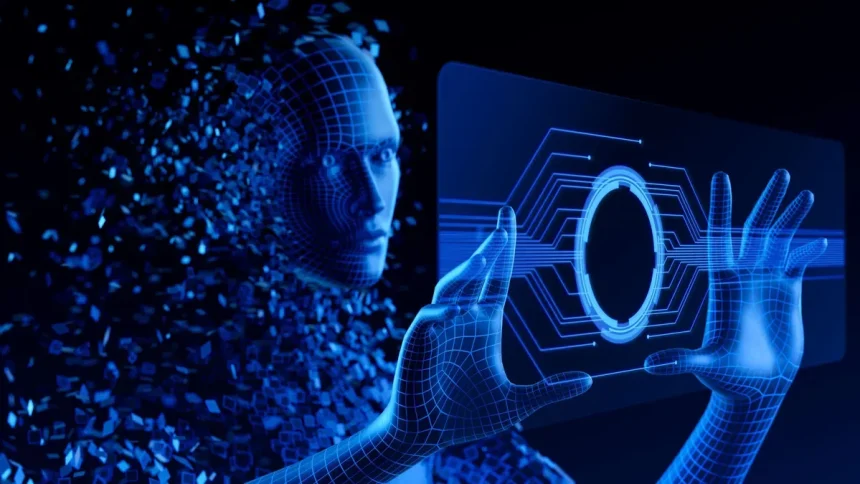Credit: Getty Images
You may not see them, but they’re everywhere. AI agents intelligent, automated systems—are quietly powering the digital infrastructure of our world.
From virtual assistants on your smartphone to recommendation engines on streaming platforms, these invisible workers are running the show behind the scenes. This silent revolution is transforming industries, streamlining processes, and redefining how humans interact with technology.
In this article, we’ll explore what AI agents are, how they operate, where they are used, and why they’re becoming one of the most influential technologies of our time.
What Are AI Agents?
At the most basic level, an AI agent is a software program that perceives its environment, makes decisions, and takes actions to achieve specific goals. These agents may be simple—like a chatbot responding to a customer query—or highly complex, such as autonomous vehicles navigating busy streets.
What sets AI agents apart from traditional software is their ability to adapt. Many use machine learning to improve performance over time, making them more efficient and intelligent the longer they operate.
Why “Silent” Revolution?
Unlike dramatic tech breakthroughs that make headlines, AI agents have slipped into our lives almost unnoticed. They’re embedded in apps, devices, websites, and machines, quietly making decisions, automating tasks, and enhancing user experiences without most people realizing what’s happening behind the curtain.
Their invisibility is what makes this revolution so “silent.” Yet their impact is anything but small.
How AI Agents Work
AI agents typically function through the following core components:
1. Perception
They receive input from the environment through sensors, cameras, user input, or data streams. For example, a smart thermostat senses room temperature.
2. Decision-Making
Using algorithms—often driven by artificial intelligence—they analyze the input and determine the best action. This could involve logic, probability, or learned behavior.
3. Action
The agent carries out a response, like adjusting a temperature, generating a reply, or moving a robotic arm.
4. Learning
Many modern AI agents are capable of learning from new data. This feedback loop allows them to refine their responses and get smarter over time.
Real-World Applications of AI Agents
Let’s look at how AI agents are already embedded in our world, often operating in the background:
1. E-commerce
When you shop online, AI agents suggest products, personalize deals, and even predict what you might need next. These recommendation engines are powerful tools that increase sales and improve user satisfaction.
2. Finance
AI agents analyze vast amounts of financial data to detect fraud, manage investments, and even execute automated trades within milliseconds.
3. Healthcare
Virtual nurses and diagnostic AI agents assist doctors by analyzing medical records, symptoms, and lab results to suggest potential diagnoses and treatment options.
4. Smart Homes
Home assistants like Alexa, Google Assistant, and Siri use AI agents to respond to voice commands, control appliances, and even learn your daily routines.
5. Transportation
Self-driving cars rely on AI agents to process data from cameras and sensors to make driving decisions. In logistics, delivery routes are optimized by intelligent routing systems.
6. Cybersecurity
AI agents monitor networks 24/7 for signs of suspicious activity. They can automatically detect and neutralize threats in real-time.
Benefits of AI Agents
AI agents bring significant advantages across different sectors:
- Increased Efficiency: Automate routine tasks, saving time and resources.
- Consistency: Perform with precision and without fatigue.
- Scalability: Handle millions of interactions simultaneously (e.g., chatbots).
- Personalization: Tailor services and products to individual user preferences.
- Real-time Decision Making: Respond to complex data inputs in seconds.
The Ethical and Social Implications
While AI agents offer undeniable benefits, they also raise several concerns:
1. Job Displacement
Automation of tasks traditionally handled by humans can lead to workforce disruption. Roles in customer service, data entry, and transport are especially vulnerable.
2. Data Privacy
AI agents often require access to personal data to function effectively, which raises issues about consent and data protection.
3. Bias and Fairness
If trained on biased data, AI agents can make unfair or discriminatory decisions. Transparency in training and auditing is crucial.
4. Accountability
When AI agents make decisions, who is responsible? Clear governance and ethical frameworks are needed to manage liability and oversight.
Future of AI Agents
The next generation of AI agents will be even more intelligent, autonomous, and emotionally aware. Some trends to watch include:
- Emotionally intelligent agents that can detect and respond to human emotions.
- Collaborative AI agents that work alongside humans, enhancing—not replacing—human intelligence.
- Multi-agent systems that coordinate complex tasks across different platforms or industries.
- Edge AI agents that operate directly on devices (e.g., smartphones or wearables), reducing the need for cloud processing.
As AI continues to evolve, these agents will become more intuitive, making technology feel more human and less mechanical.
Conclusion
The rise of AI agents marks a silent but powerful revolution one that is changing how we live, work, and interact with technology. Though often invisible, these intelligent systems are behind many of the conveniences we now take for granted.
Understanding how AI agents work and their growing influence is essential as we move toward a future where human and machine collaboration will be the norm, not the exception. The key will be to ensure that this progress is guided by ethics, transparency, and a focus on human well-being.


















